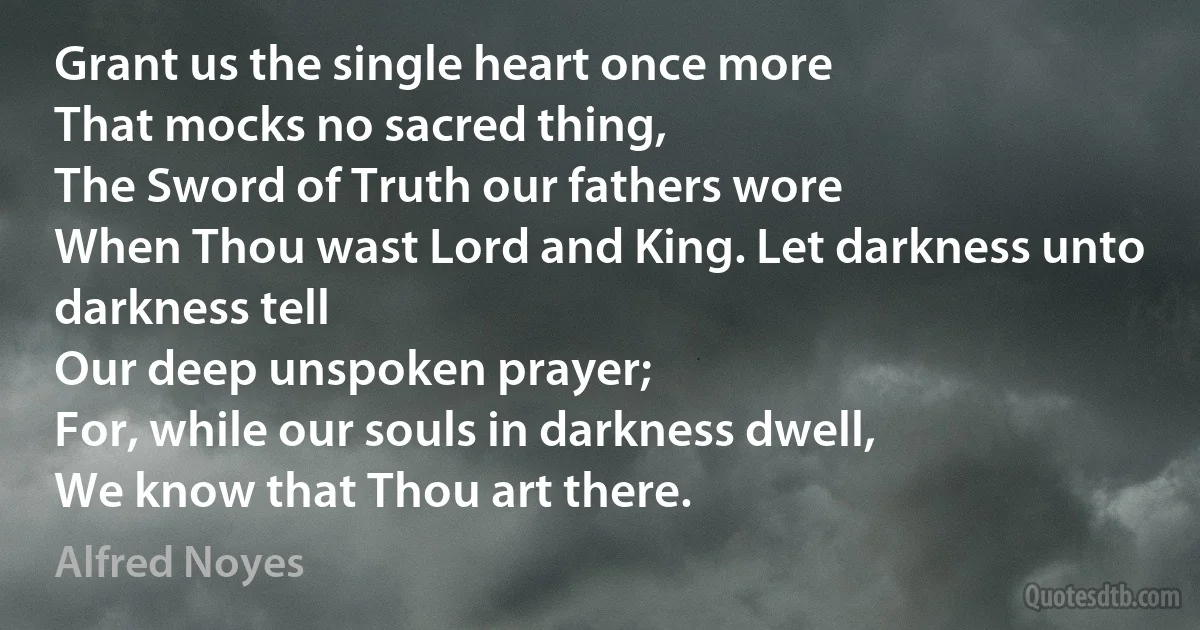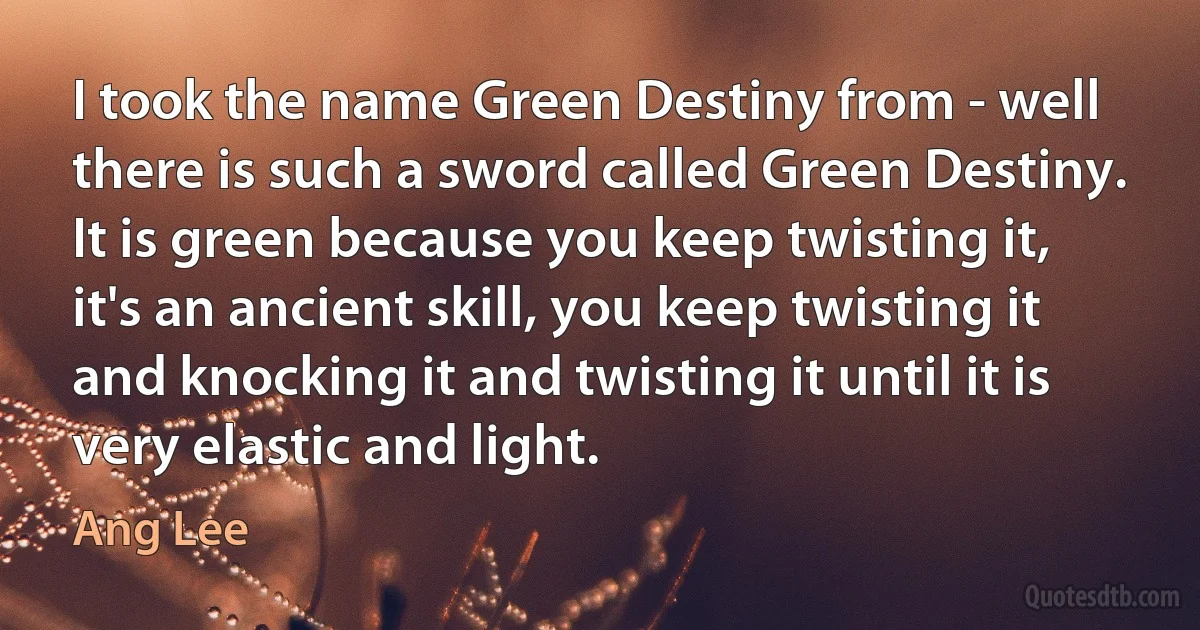Sword Quotes - page 5
Esoteric truth is a two-edged sword: there are men who lose God because they are ignorant of this truth, which alone would save them, and there are others who think they understand it and forge for themselves an illusory and arrogant faith, which they put practically in place of God.

Frithjof Schuon
You see our new towns, our smiling countryside. I am proud of our achievements. There is an enormous amount more to do. Remember that we are a great crusading body, armed with a fervent spirit for the reign of righteousness on earth. Let us go forward into this fight in the spirit of William Blake: "I will not cease from mental strife/Nor shall my sword sleep in my hand/Till we have built Jerusalem/In England's green and pleasant land."

Clement Attlee
Here enter you, pure, honest, faithful, true
Expounders of the Scriptures old and new.
Whose glosses do not blind our reason, but
Make it to see the clearer, and who shut
Its passages from hatred, avarice,
Pride, factions, covenants, and all sort of vice.
Come, settle here a charitable faith,
Which neighbourly affection nourisheth.
And whose light chaseth all corrupters hence,
Of the blest word, from the aforesaid sense.
The holy sacred Word,
May it always afford
T' us all in common,
Both man and woman,
A spiritual shield and sword,
The holy sacred Word.

François Rabelais
I'm waiting. ... For something new and strange,
Something I've dreamt about in some deep sleep,
Truer than any waking,
Heard about, long ago, so long ago,
In sunshine and the summer grass of childhood,
When the sky seems so near.
I do not know its shape, its will, its purpose
And yet all day its will has been upon me,
More real than any voice I ever heard,
More real than yours or mine or our dead child's,
More real than all the voices there upstairs,
Brawling above their cups, more real than light.
And there is light in it and fire and peace,
Newness of heart and strangeness like a sword,
And all my body trembles under it,
And yet I do not know.

Stephen Vincent Benét
Not many details are given but my guess is that some Middle Eastern political leader will be wounded with a sword blow to the head (maybe even beheaded? - have they done a head transplant or reattachment yet?) and will come back to life. The world will wonder at him and follow him. He will set up an image of himself in the new Jewish temple and order everyone to worship it.

Kent Hovind
I care little about the sword: I will allow a thing to struggle for itself in this world, with any sword or tongue or implement it has, or can lay hold of. We will let it preach, and pamphleteer, and fight, and to the uttermost bestir itself, and do, beak and claws, whatsoever is in it; very sure that it will, in the long-run, conquer nothing which does not deserve to be conquered. What is better than itself, it cannot put away, but only what is worse. In this great Duel, Nature herself is umpire, and can do no wrong: the thing which is deepest-rooted in Nature, what we call truest, that thing and not the other will be found growing at last.

Thomas Carlyle
Much has been said of Mahomet's propagating his Religion by the sword. It is no doubt far nobler what we have to boast of the Christian Religion, that it propagated itself peaceably in the way of preaching and conviction. Yet withal, if we take this for an argument of the truth or falsehood of a religion, there is a radical mistake in it. The sword indeed: but where will you get your sword! Every new opinion, at its starting, is precisely in a minority of one. In one man's head alone, there it dwells as yet. One man alone of the whole world believes it; there is one man against all men. That he take a sword, and try to propagate with that, will do little for him. You must first get your sword! On the whole, a thing will propagate itself as it can. We do not find, of the Christian Religion either, that it always disdained the sword, when once it had got one.

Thomas Carlyle
The struggle against demagoguery scarcely fits the St George-against-the-dragon myth. Our democratic St George goes out rather reluctantly with armor awry. The struggle is confused; our knight wins by no clean thrust of lance or sword, but the dragon somehow poops out, and decent democracy is victor.

Norman Thomas
How was he to cause war, as the prophecies say he must? How was he to break the nations and bind them to him? How could he 'slay his people with the sword of peace' or 'bind the nine moons to serve him' if he was locked away? Do the prophecies say that he will be 'unfettered'? Do they not speak of the 'chaos of his passing?

Robert Jordan



